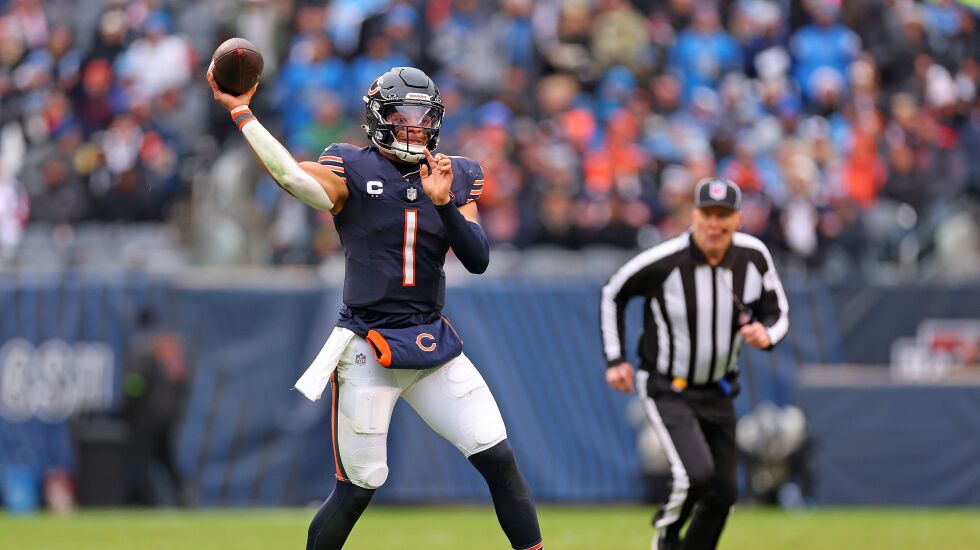
Anybody else notice how uncharacteristically green and healthy the grass at Soldier Field looked for Bears-Lions on Sunday? It typically has been patchy and perhaps unstable by this time of year, but it has been excellent since coach Matt Eberflus and the Bears insisted on switching to Bermuda grass.
When quarterback Justin Fields described his 11-yard touchdown run in the Bears’ 28-13 win over the Lions, he said he “just saw green grass,” which was interesting because it’s usually yellowish and patchy at this point in the season.
“It’s funny you say that, because when I stepped on the field, I noticed how green it was,” Fields said. “Whoever is keeping up with the field is definitely doing a great job of handling the grass and making sure it’s good to go when we go out there.”
He added it “definitely does” make a difference in performance to have reliable grass, and Eberflus shouted out head groundskeeper Ken Mrock unprompted Monday.
“Ken Mrock’s our grounds crew guy and does an excellent job with taking care of our fields here at Halas, but also at Soldier Field,” Eberflus said. “That thing was in great shape. It’s a hybrid Bermuda grass that we talked about when we first got here ... and making that a better surface, a faster surface.”
The tipping point for the change from Kentucky bluegrass to Carolina Green Corporation’s Tahoma 31 sod was a preseason game against the Chiefs last year in which the grass was so bad that NFL agent David Canter called for it to be postponed and NFLPA president J.C. Tretter said the league needed to do better.
Bears kicker Cairo Santos called it “reckless” for the NFL to hold a game on that field and described it as “a sandy field that they spray-painted green.”
Eberflus said at the time he was not “a grass expert” and wouldn’t say whether he pushed for the switch.







